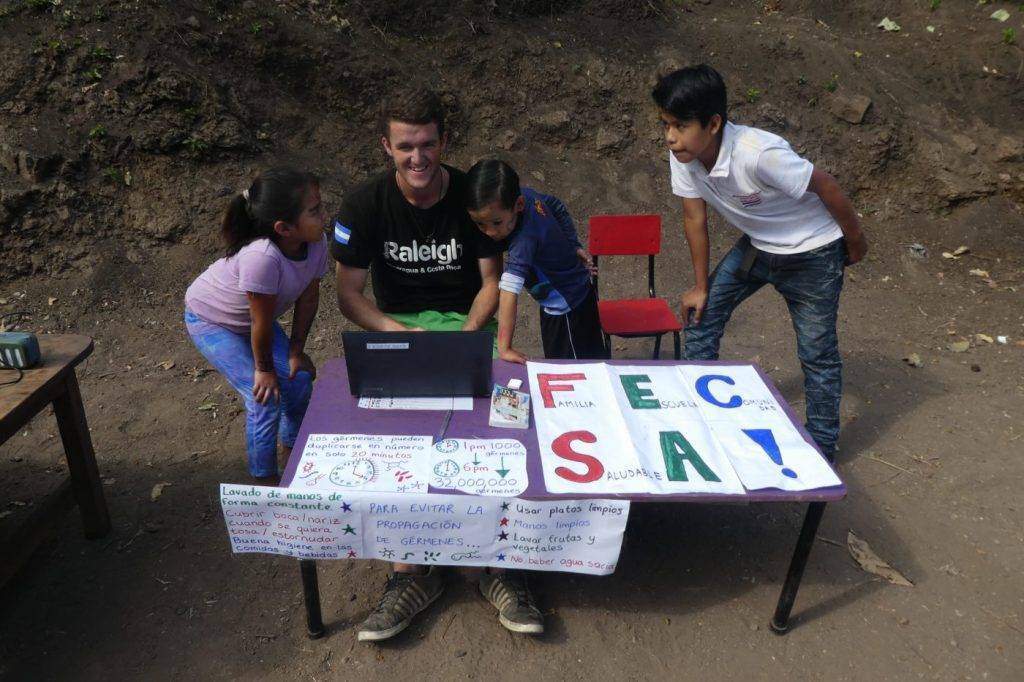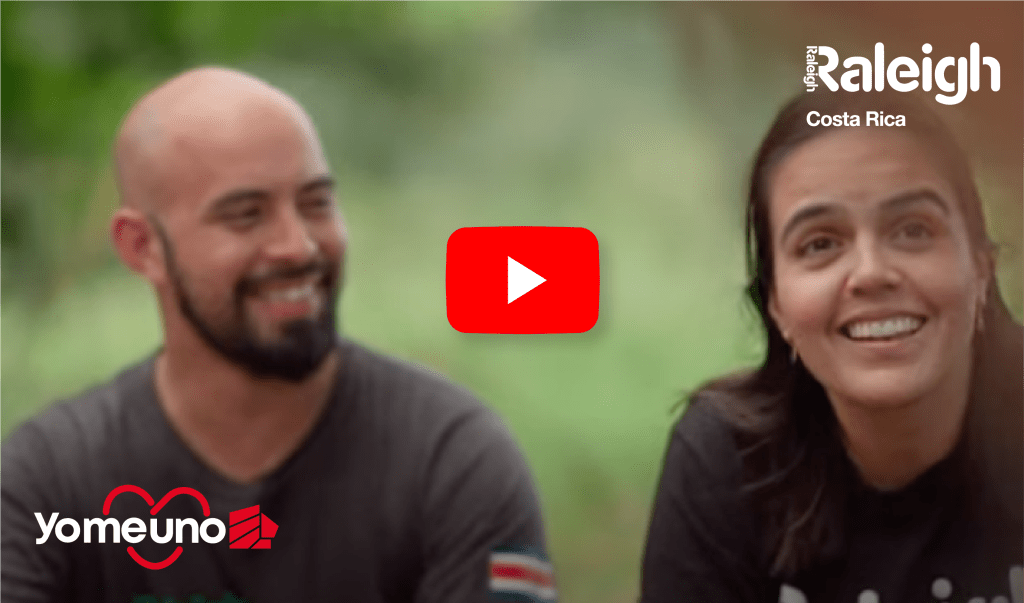On Raleigh Expedition in Costa Rica and Nicaragua, home country volunteers, whose native language is Spanish, volunteer alongside international volunteers. During the projects, it is essential that these host country volunteers are also able to be involved in conversations and communicate well. On trek we often had to cross rivers. The weight of our rucksacks meant that we were unstable and there were often large objects that had to be navigated by the group. This required very clear communication, so that each individual knew exactly what was going on. There were also times when we were crossing roads, making group decisions and navigating, where clear communication and translation was important. Translation was also crucial for trek when communicating with locals such as, asking for directions, finding places to stay, or even finding water.
En Raleigh Expedition en Costa Rica y Nicaragua, los voluntarios del país de origen, cuyo idioma materno es el español, son voluntarios junto con voluntarios internacionales. Durante los proyectos, es esencial que estos voluntarios del país anfitrión también puedan comunicarse bien. En la caminata, a menudo tuvimos que cruzar ríos. El peso de nuestras mochilas significaba que éramos inestables y que a menudo había objetos grandes que el grupo tenía que navegar. Esto requirió una comunicación muy clara, para que cada individuo supiera exactamente lo que estaba sucediendo. También hubo momentos en los que estábamos cruzando carreteras, tomando decisiones grupales y navegando, donde la comunicación y la traducción claras eran importantes. La traducción también fue importante para la caminata cuando se comunicaba con los lugareños, como pedir direcciones, encontrar lugares para quedarse o incluso encontrar agua.
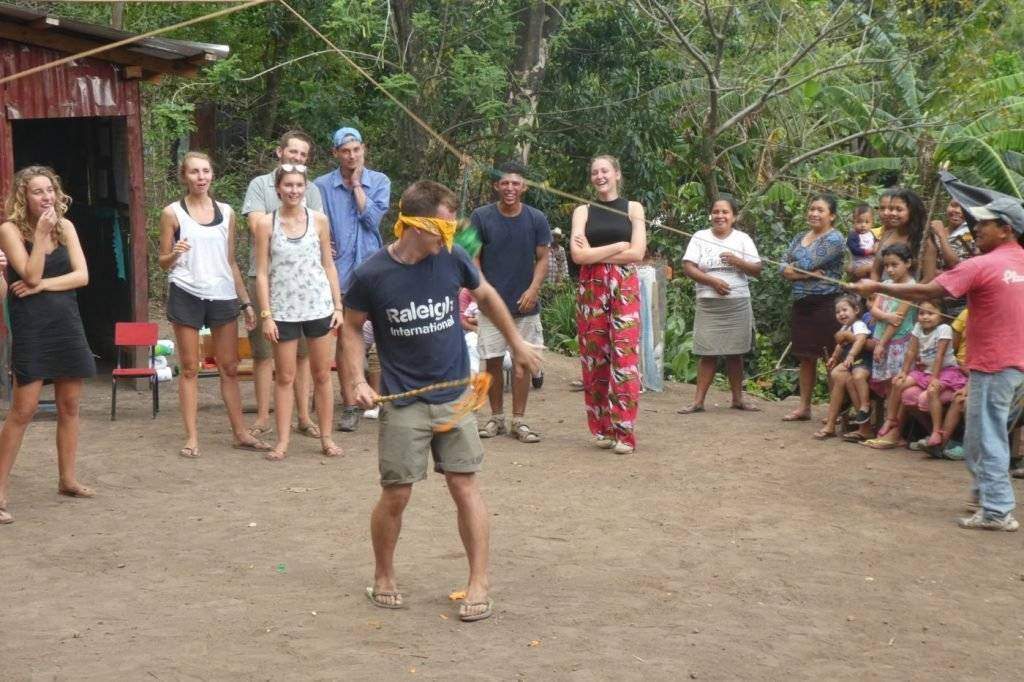
Whilst staying with a host family in the community of Valle de Casas in the Matagalpa region of Nicaragua, we felt the necessity of translation daily. In our household, we were constantly switching between languages. Whether it be to explain something to our family or, to translate what they had said to other volunteers who didn’t speak a lot of Spanish, it was an essential part of our day to day lives. Another way that translation played an important role during our time in Valle de Casas was during the action days that we planned with the community. These events were used to raise awareness amongst the members of the community about topics such as personal hygiene, food hygiene and keeping the community clean. These days had to be entirely in Spanish in order for us to convey our points to those that attended however, it was also still vital that all members of the group understood what was going on.
Mientras nos quedamos con una familia de acogida en la comunidad de Valle de Casas en la región de Matagalpa en Nicaragua, sentimos la necesidad de traducir diariamente. En nuestro hogar, cambiábamos constantemente de un idioma a otro. Ya sea para explicar algo a nuestra familia o para traducir lo que habían dicho a otros voluntarios que no hablaban mucho español, era una parte esencial de nuestra vida cotidiana. Otra forma en que la traducción jugó un papel importante durante nuestro tiempo en Valle de Casas fue durante los días de acción que planeamos con la comunidad. Estos eventos se utilizaron para concienciar a los miembros de la comunidad sobre temas como la higiene personal, la higiene de los alimentos y la limpieza de la comunidad. Estos días tenían que ser totalmente en español para poder transmitir nuestros puntos a los que asistieron, sin embargo, también era importante que todos los miembros del grupo entendieran lo que estaba pasando.
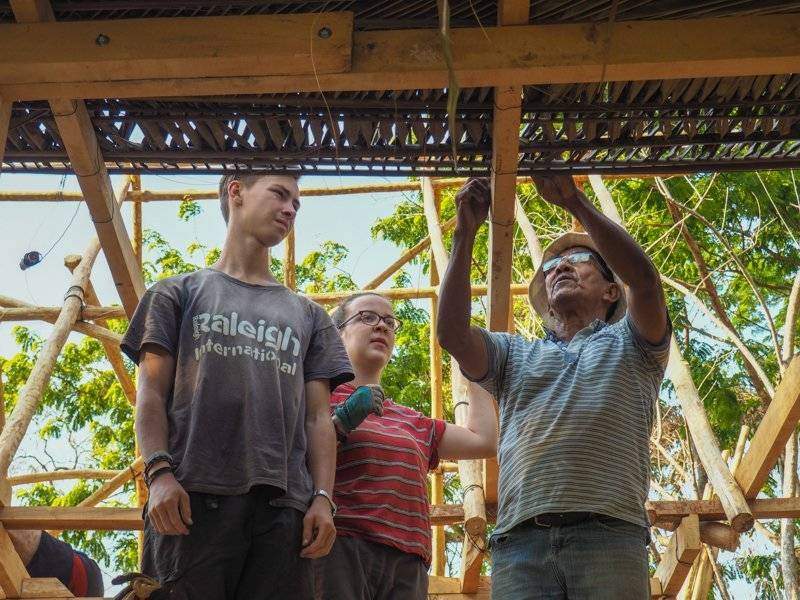
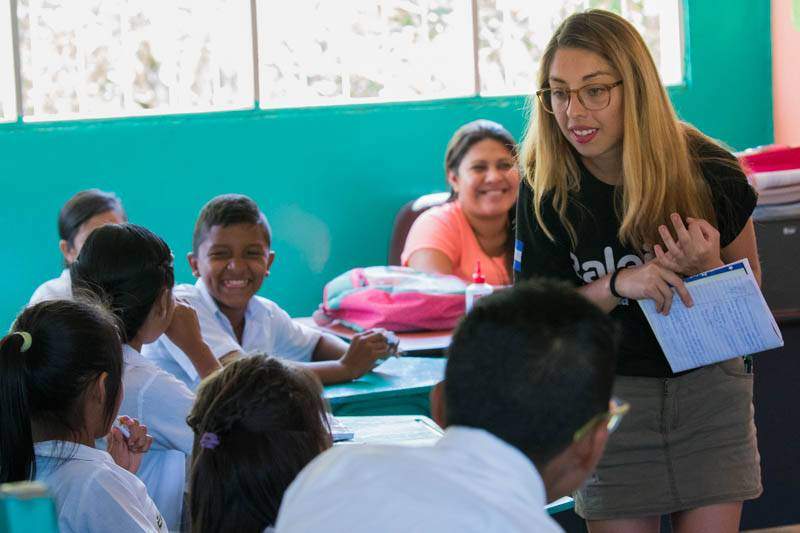
As part of our Natural Resource Management project, we stayed and worked in the indigenous community of Matambú in the Guanacaste region of Costa Rica. Here, it was important for us to translate whilst we were working so that we could understand what we needed to do each day and also, to understand the overall aims of the project. This involved the whole group learning project specific words such as, the names of tools in Spanish. As well as this, during our time in Matambú we stayed in a family’s cabin. In order to be involved with the family during our three weeks there, we always spoke in both English and Spanish. This allowed us to learn about the Chorotega culture, make local indigenous crafts and to fully integrate into a new culture and community.
Como parte de nuestro proyecto de Gestión de Recursos Naturales, nos quedamos y trabajamos en la comunidad indígena de Matambú, en la región de Guanacaste en Costa Rica. Aquí, era importante para nosotros traducir mientras trabajábamos para poder entender lo que teníamos que hacer cada día y también para comprender los objetivos generales del proyecto. Esto involucró a todo el grupo aprendiendo palabras específicas del proyecto, como los nombres de las herramientas en español. Además de esto, durante nuestro tiempo en Matambú nos quedamos en la cabaña de una familia. Para poder involucrarnos con la familia durante nuestras tres semanas allí, siempre hablamos en inglés y español. Esto nos permitió aprender sobre la cultura Chorotega, hacer artesanías indígenas locales e integrarse completamente en una nueva cultura y comunidad. Overall, the use of both languages throughout our Raleigh Expedition has played an essential role, particularly in terms of creating meaningful change, engaging with locals and involving everyone on the project. Para resumir, el uso de las dos lenguas durante nuestra expedición de Raleigh ha desempeñado un papel importante, sobre todo en cuanto a crear cambio significativo, integrarse con la gente nativa e incluir todo el mundo.
Monday 23rd April is Spanish Language Day. We are proud to work alongside volunteers, community members and project partners from different cultures, countries and backgrounds to make a sustainable impact in rural communities across Nicaragua and Costa Rica.
Words by Alpha 3 Volunteers: William McMahon and Megan Short Palabras de Alpha 3 Voluntarios: William McMahon and Megan Short
